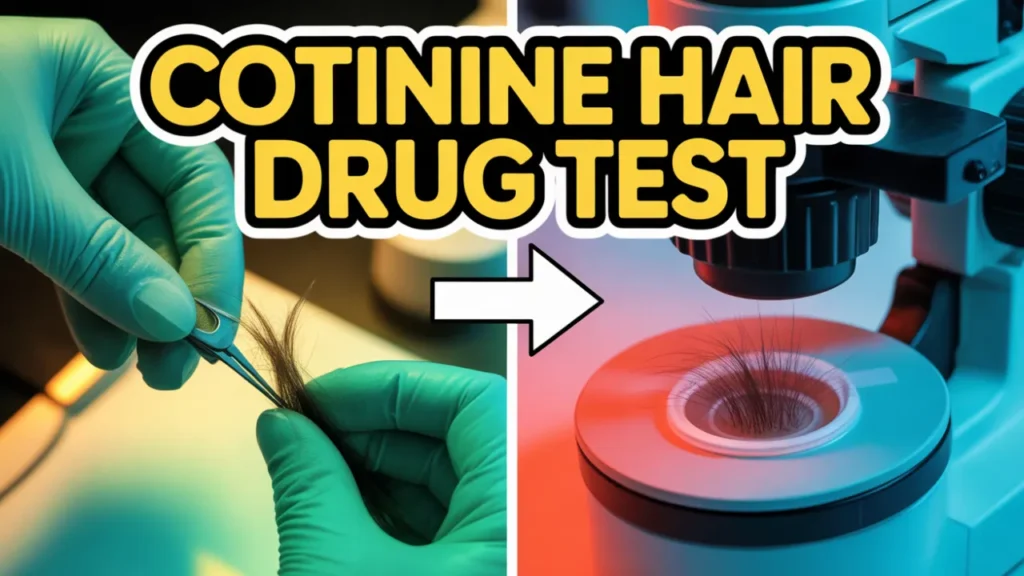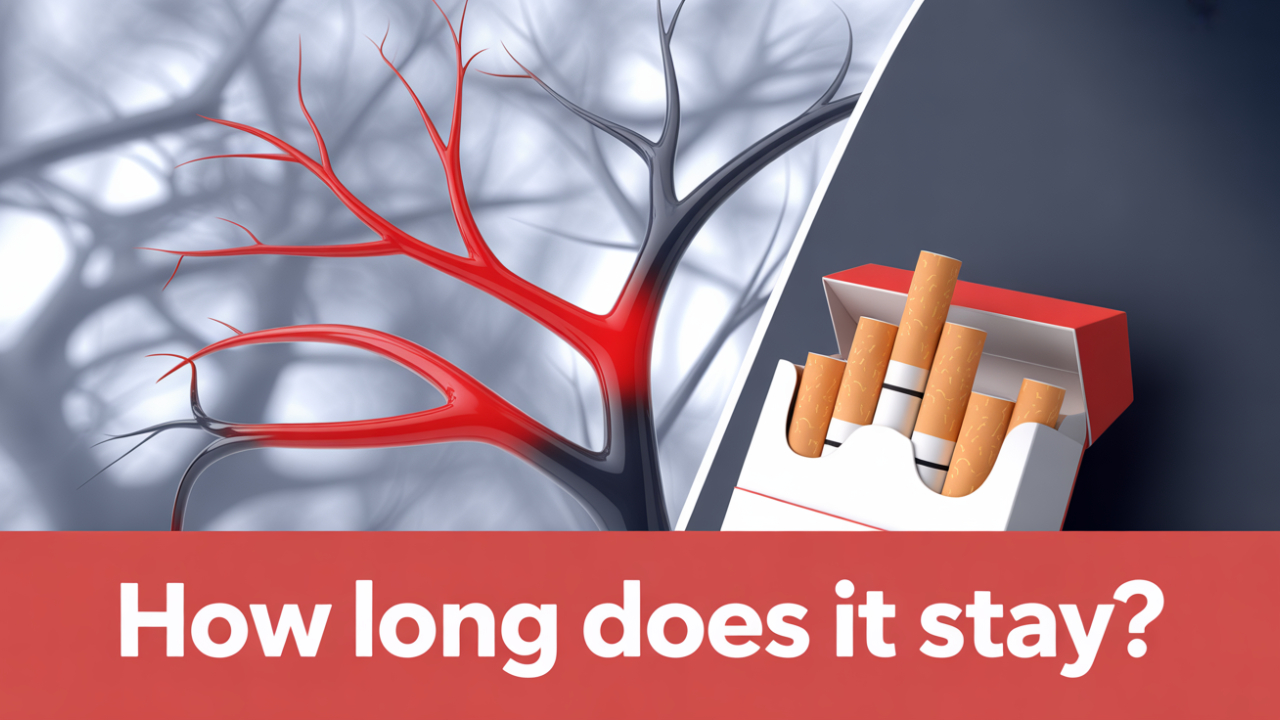How Long Cotinine Stays In System
At Lynk Diagnostics, we specialize in high-accuracy urine drug test cups used to detect cotinine, a biomarker of nicotine. This blog answers a common question in health care, employment screening, and addiction recovery: how long cotinine stays in your system. Whether you’re a patient, physician, or rehab center, understanding cotinine clearance times is essential to interpreting drug test results.
What Is Cotinine?
Cotinine is a chemical compound and primary biomarker of nicotine metabolism. After nicotine is absorbed through smoking, a nicotine patch, nicotine gum, or vaping, the liver processes it into cotinine using specific enzyme pathways.
Cotinine levels provide more stable detection of nicotine use because it stays in the body longer than nicotine itself. It’s widely measured in urine, blood plasma, saliva, and hair follicle samples.
Why Cotinine Testing Matters
Cotinine testing is used in health care, addiction treatment, insurance assessments, and biomonitoring programs. Physicians rely on it to verify tobacco use or nicotine replacement therapy.
Health insurance providers, including those operating under the Affordable Care Act, use cotinine test results to assess risk. Life insurance companies may also require this screening during application.
Cotinine Detection Windows by Test Type
Urine Test
A urine test is the most common and cost-effective method for cotinine detection. Cotinine can stay in the urine for up to 3–4 days after nicotine exposure, or longer with heavy use.
Lynk Diagnostics provides high-sensitivity urine drug test cups that deliver clear results within minutes, supporting mental health treatment centers, dual diagnosis programs, and rehab facilities.
Blood Test
A blood test measures cotinine in blood plasma, offering precise levels of nicotine exposure. Cotinine remains in the blood for 1–3 days, depending on liver function, hydration, and individual metabolism.
Blood tests may be used in medically reviewed cases involving pregnancy, organ transplantation, or clinical trials funded by the National Institutes of Health or Food and Drug Administration.
Hair Follicle Test
Hair follicle testing can detect cotinine for up to 90 days after use. It’s used in court-ordered testing, tobacco control studies, and long-term sobriety verification.
Lynk Diagnostics’ test solutions are compatible with advanced lab settings performing extended biomarker analysis for nicotine and related toxins.

What Affects How Long Cotinine Stays in the Body?
1. Liver and Enzyme Function
The liver uses enzymes to break down nicotine into cotinine. If liver function is impaired—due to disease, medication, or genetic variation—clearance may be slower.
2. Frequency and Form of Nicotine Use
Daily smoking or vaping causes cotinine to accumulate in the body. Even nicotine gum, a nicotine patch, or an inhaler can raise cotinine levels depending on frequency and dose.
3. Hydration and Diet
Drinking water, eating antioxidant-rich foods like fruit and vegetables, and increasing physical activity may support detoxification. A nutritious meal plan with proper vitamin intake also aids metabolism.
4. Health Conditions and Medications
Conditions like type 2 diabetes, ulcerative colitis, and obesity, or use of medications like bupropion, varenicline, or semaglutide, may alter nicotine processing and excretion. Mental health disorders such as anxiety, bipolar disorder, or insomnia may influence nicotine dependence, affecting cotinine levels over time.
How Cotinine Leaves the System
Cotinine exits the body through excretion in urine, sweat, saliva, and breast milk. The kidneys and liver coordinate clearance, influenced by toxin levels, hydration, and individual health.
In pregnant patients, cotinine can pass to the fetus via the placenta or through milk to a nursing infant. Tobacco control is essential for maternal and fetal health.
Cotinine Testing and Mental Health
Nicotine use is often linked to anxiety, stress, and mood disorders. Some individuals with dual diagnosis—experiencing both substance use disorder and mental health challenges—use nicotine as a coping mechanism.
Tracking cotinine through regular testing supports rehab programs and mental health treatment by confirming abstinence and preventing relapse. Lynk Diagnostics’ drug test cups provide clarity for patients and health care providers managing withdrawal, insomnia, and depression symptoms during recovery.
Cotinine, Tobacco Industry, and Disease Risk
The tobacco industry has long promoted smoking despite its links to disease. Cotinine testing provides concrete evidence of exposure, supporting public health measures recommended by the American Cancer Society and National Cancer Institute.
Smoking increases risk for lung disease, diabetes, cardiovascular disease, and breast cancer. Elevated heart rate, blood pressure, cough, and fatigue are common among chronic users. Cotinine testing helps physicians and patients make informed treatment decisions.
Can Detoxification or Diet Speed Cotinine Clearance?
Detoxification Methods
While no product guarantees instant detoxification, staying hydrated, engaging in physical activity, and getting adequate sleep can support the body’s natural detox system. These habits may lower cotinine concentration gradually.
Role of Nutrition and Antioxidants
A healthy diet full of antioxidants—found in berries, citrus fruit, leafy greens—helps the liver process and excrete toxins. Some evidence suggests vitamin C, vitamin E, and other nutrients may boost enzyme activity during detoxification.
Working with a dietitian can provide a plan for weight management, appetite regulation, and improved detox speed—especially in those with stress, menopause, or hormonal shifts.
Cotinine and Drug Interactions
Patients using medications for mental health or chronic disease must be cautious. Nicotine use can interact with antidepressants, antipsychotics, and stimulants like Adderall or opioids.
Nicotine affects dopamine pathways in the brain, which can impact mood, motivation, and pleasure perception. When patients quit suddenly, withdrawal may include nausea, constipation, mood swings, and cravings.
Regular cotinine testing with Lynk Diagnostics’ urine test cups helps monitor progress during medication adjustment or rehab. Health care providers can use this information to manage symptoms and reduce relapse risk.
Interpreting Cotinine Test Results
Reference Range and Levels
Cotinine test results are measured in nanograms per milliliter (ng/mL). A typical reference range:
- non-user or passive exposure
- 10–500 ng/mL: active nicotine use (smoking, gum, patch, etc.)
- >500 ng/mL: heavy or recent nicotine use
What Do High Levels Mean?
High cotinine levels indicate recent or frequent nicotine intake. If the result exceeds the reference range, it could suggest active use or exposure to tobacco smoke.
Patients should disclose nicotine gum, patch, or inhaler use to prevent misinterpretation.
Cotinine and Relapse Monitoring
For patients in rehab, staying nicotine-free supports full abstinence and improves long-term outcomes. Continued cotinine presence can signal a potential relapse in behavior, even if other drugs are absent.
Sobriety from nicotine may improve overall mental health, reduce anxiety, and support mood stability. Lynk Diagnostics supports these efforts with high-accuracy testing kits that deliver actionable results in minutes.
Special Considerations in Testing
Pregnancy
Pregnant patients using nicotine require careful monitoring due to the risk of fetal exposure. Cotinine crosses the placenta and enters milk. Testing can help physicians guide safer treatment plans and behavioral changes.
Adolescents and Youth
Nicotine use among youth, particularly from vaping, poses new public health challenges. Testing helps identify early use, offering opportunities for education, intervention, and stress management before addiction escalates.
Bipolar Disorder and Mental Health Conditions
Patients with bipolar disorder, depression, or anxiety are more likely to use nicotine for self-medication. Cotinine monitoring plays a critical role in managing treatment plans and detecting early signs of substance dependency.
How Lynk Diagnostics Supports Cotinine Testing
Lynk Diagnostics offers urine drug test cups that detect cotinine accurately and efficiently. Our products help physicians, rehab centers, and health care providers make data-driven decisions across patient care, insurance evaluations, and workplace testing.
Each test is designed to meet high standards of accuracy and speed, making it easier to continue treatment, reduce relapse, and maintain abstinence. All products are medically reviewed and built with patient safety in mind.
Final Thoughts on How Long Cotinine Stays In System
Cotinine can remain in the body for days or even weeks, depending on the type of test used and individual health factors. For anyone asking how long cotinine stays in system, it’s important to consider frequency of use, detox habits, and the type of drug test being used.
Lynk Diagnostics provides reliable tools to measure cotinine levels, aiding in tobacco control, mental health treatment, and rehab support. Whether you’re a health care provider, insurance network, or treatment center, we deliver fast, secure, and accurate drug testing you can trust.
Need high-quality cotinine test kits for your facility? Explore Lynk Diagnostics’ urine drug test cups today.
FAQs
How long will cotinine test positive?
Cotinine can test positive in a urine test for up to 4 days, blood test for up to 3 days, and hair follicle test for up to 90 days. Heavy nicotine users may test positive longer. Lynk Diagnostics’ urine drug test cups are designed to detect cotinine during this window with high accuracy.
How long until cotinine leaves my body?
Cotinine typically leaves the body within 2 to 4 days after nicotine use ends. However, this depends on metabolism, liver health, hydration, and nicotine dose. Factors like diet, physical activity, and antioxidant intake can support faster detoxification.
How quickly do cotinine levels drop?
Cotinine levels begin to drop within 24 hours after the last nicotine exposure. The concentration halves every 16 to 20 hours on average. Hydration, enzyme activity, and liver function affect how quickly it clears from the blood and urine.








